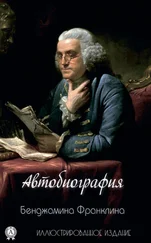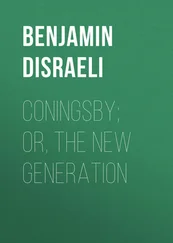Бенджамин Дизраэли - Coningsby
Здесь есть возможность читать онлайн «Бенджамин Дизраэли - Coningsby» весь текст электронной книги совершенно бесплатно (целиком полную версию без сокращений). В некоторых случаях можно слушать аудио, скачать через торрент в формате fb2 и присутствует краткое содержание. Год выпуска: 2014, Издательство: epubBooks Classics, Жанр: Классическая проза, на английском языке. Описание произведения, (предисловие) а так же отзывы посетителей доступны на портале библиотеки ЛибКат.
- Название:Coningsby
- Автор:
- Издательство:epubBooks Classics
- Жанр:
- Год:2014
- ISBN:нет данных
- Рейтинг книги:4 / 5. Голосов: 1
-
Избранное:Добавить в избранное
- Отзывы:
-
Ваша оценка:
- 80
- 1
- 2
- 3
- 4
- 5
Coningsby: краткое содержание, описание и аннотация
Предлагаем к чтению аннотацию, описание, краткое содержание или предисловие (зависит от того, что написал сам автор книги «Coningsby»). Если вы не нашли необходимую информацию о книге — напишите в комментариях, мы постараемся отыскать её.
Coningsby — читать онлайн бесплатно полную книгу (весь текст) целиком
Ниже представлен текст книги, разбитый по страницам. Система сохранения места последней прочитанной страницы, позволяет с удобством читать онлайн бесплатно книгу «Coningsby», без необходимости каждый раз заново искать на чём Вы остановились. Поставьте закладку, и сможете в любой момент перейти на страницу, на которой закончили чтение.
Интервал:
Закладка:
The peace came; the stimulating influences suddenly ceased; the people, in a novel and painful position, found themselves without guides. They went to the ministry; they asked to be guided; they asked to be governed. Commerce requested a code; trade required a currency; the unfranchised subject solicited his equal privilege; suffering labour clamoured for its rights; a new race demanded education. What did the ministry do?
They fell into a panic. Having fulfilled during their lives the duties of administration, they were frightened because they were called upon, for the first time, to perform the functions of government. Like all weak men, they had recourse to what they called strong measures. They determined to put down the multitude. They thought they were imitating Mr. Pitt, because they mistook disorganisation for sedition.
Their projects of relief were as ridiculous as their system of coercion was ruthless; both were alike founded in intense ignorance. When we recall Mr. Vansittart with his currency resolutions; Lord Castlereagh with his plans for the employment of labour; and Lord Sidmouth with his plots for ensnaring the laborious; we are tempted to imagine that the present epoch has been one of peculiar advances in political ability, and marvel how England could have attained her present pitch under a series of such governors.
We should, however, be labouring under a very erroneous impression. Run over the statesmen that have figured in England since the accession of the present family, and we may doubt whether there be one, with the exception perhaps of the Duke of Newcastle, who would have been a worthy colleague of the council of Mr. Perceval, or the early cabinet of Lord Liverpool. Assuredly the genius of Bolingbroke and the sagacity of Walpole would have alike recoiled from such men and such measures. And if we take the individuals who were governing England immediately before the French Revolution, one need only refer to the speeches of Mr. Pitt, and especially to those of that profound statesman and most instructed man, Lord Shelburne, to find that we can boast no remarkable superiority either in political justice or in political economy. One must attribute this degeneracy, therefore, to the long war and our insular position, acting upon men naturally of inferior abilities, and unfortunately, in addition, of illiterate habits.
In the meantime, notwithstanding all the efforts of the political Panglosses who, in evening Journals and Quarterly Reviews were continually proving that this was the best of all possible governments, it was evident to the ministry itself that the machine must stop. The class of Rigbys indeed at this period, one eminently favourable to that fungous tribe, greatly distinguished themselves. They demonstrated in a manner absolutely convincing, that it was impossible for any person to possess any ability, knowledge, or virtue, any capacity of reasoning, any ray of fancy or faculty of imagination, who was not a supporter of the existing administration. If any one impeached the management of a department, the public was assured that the accuser had embezzled; if any one complained of the conduct of a colonial governor, the complainant was announced as a returned convict. An amelioration of the criminal code was discountenanced because a search in the parish register of an obscure village proved that the proposer had not been born in wedlock. A relaxation of the commercial system was denounced because one of its principal advocates was a Socinian. The inutility of Parliamentary Reform was ever obvious since Mr. Rigby was a member of the House of Commons.
To us, with our Times newspaper every morning on our breakfast–table, bringing, on every subject which can interest the public mind, a degree of information and intelligence which must form a security against any prolonged public misconception, it seems incredible that only five–and–twenty years ago the English mind could have been so ridden and hoodwinked, and that, too, by men of mean attainments and moderate abilities. But the war had directed the energies of the English people into channels by no means favourable to political education. Conquerors of the world, with their ports filled with the shipping of every clime, and their manufactories supplying the European continent, in the art of self–government, that art in which their fathers excelled, they had become literally children; and Rigby and his brother hirelings were the nurses that frightened them with hideous fables and ugly words.
Notwithstanding, however, all this successful mystification, the Arch–Mediocrity who presided, rather than ruled, over this Cabinet of Mediocrities, became hourly more conscious that the inevitable transition from fulfilling the duties of an administration to performing the functions of a government could not be conducted without talents and knowledge. The Arch–Mediocrity had himself some glimmering traditions of political science. He was sprung from a laborious stock, had received some training, and though not a statesman, might be classed among those whom the Lord Keeper Williams used to call 'statemongers.' In a subordinate position his meagre diligence and his frigid method might not have been without value; but the qualities that he possessed were misplaced; nor can any character be conceived less invested with the happy properties of a leader. In the conduct of public affairs his disposition was exactly the reverse of that which is the characteristic of great men. He was peremptory in little questions, and great ones he left open.
In the natural course of events, in 1819 there ought to have been a change of government, and another party in the state should have entered into office; but the Whigs, though they counted in their ranks at that period an unusual number of men of great ability, and formed, indeed, a compact and spirited opposition, were unable to contend against the new adjustment of borough influence which had occurred during the war, and under the protracted administration by which that war had been conducted. New families had arisen on the Tory side that almost rivalled old Newcastle himself in their electioneering management; and it was evident that, unless some reconstruction of the House of Commons could be effected, the Whig party could never obtain a permanent hold of official power. Hence, from that period, the Whigs became Parliamentary Reformers.
It was inevitable, therefore, that the country should be governed by the same party; indispensable that the ministry should be renovated by new brains and blood. Accordingly, a Mediocrity, not without repugnance, was induced to withdraw, and the great name of Wellington supplied his place in council. The talents of the Duke, as they were then understood, were not exactly of the kind most required by the cabinet, and his colleagues were careful that he should not occupy too prominent a post; but still it was an impressive acquisition, and imparted to the ministry a semblance of renown.
There was an individual who had not long entered public life, but who had already filled considerable, though still subordinate offices. Having acquired a certain experience of the duties of administration, and distinction for his mode of fulfilling them, he had withdrawn from his public charge; perhaps because he found it a barrier to the attainment of that parliamentary reputation for which he had already shown both a desire and a capacity; perhaps because, being young and independent, he was not over–anxious irremediably to identify his career with a school of politics of the infallibility of which his experience might have already made him a little sceptical. But he possessed the talents that were absolutely wanted, and the terms were at his own dictation. Another, and a very distinguished Mediocrity, who would not resign, was thrust out, and Mr. Peel became Secretary of State.
Читать дальшеИнтервал:
Закладка:
Похожие книги на «Coningsby»
Представляем Вашему вниманию похожие книги на «Coningsby» списком для выбора. Мы отобрали схожую по названию и смыслу литературу в надежде предоставить читателям больше вариантов отыскать новые, интересные, ещё непрочитанные произведения.
Обсуждение, отзывы о книге «Coningsby» и просто собственные мнения читателей. Оставьте ваши комментарии, напишите, что Вы думаете о произведении, его смысле или главных героях. Укажите что конкретно понравилось, а что нет, и почему Вы так считаете.
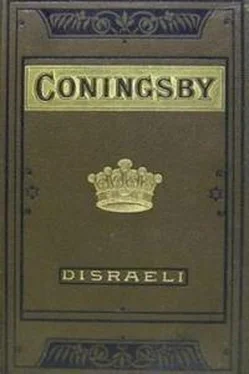
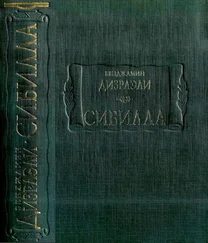
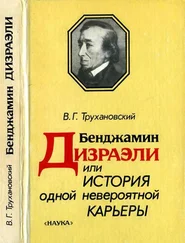
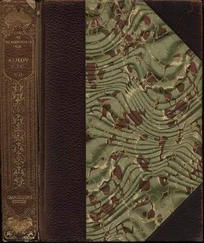

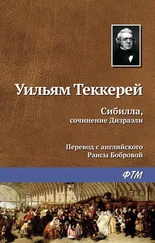
![Мелани Бенджамин - Госпожа отеля «Ритц» [litres]](/books/384861/melani-bendzhamin-gospozha-otelya-ritc-litres-thumb.webp)




